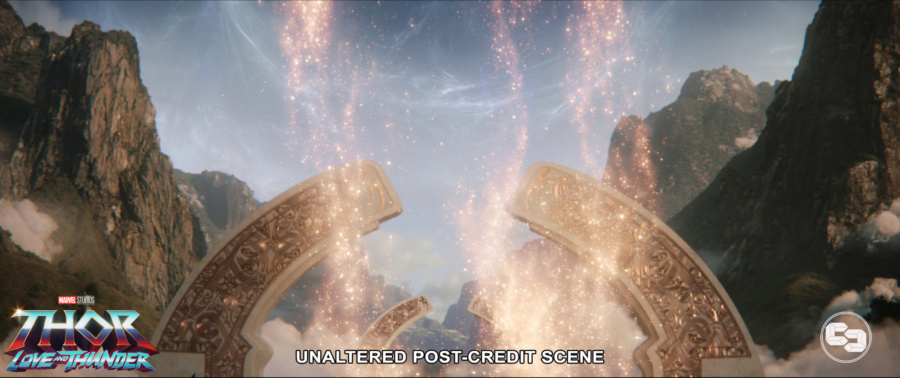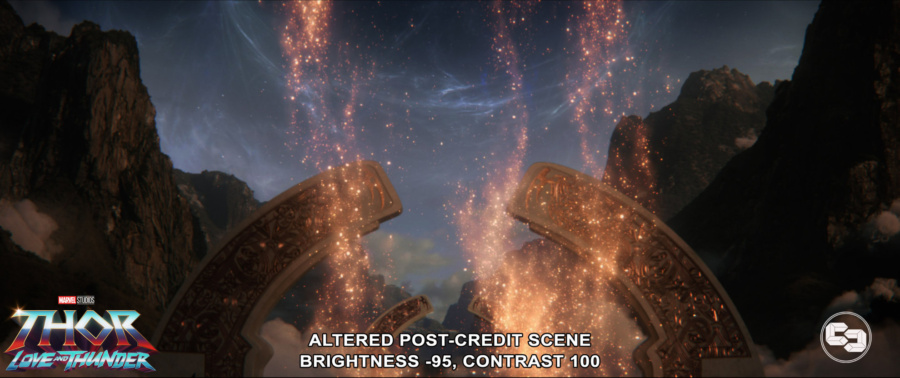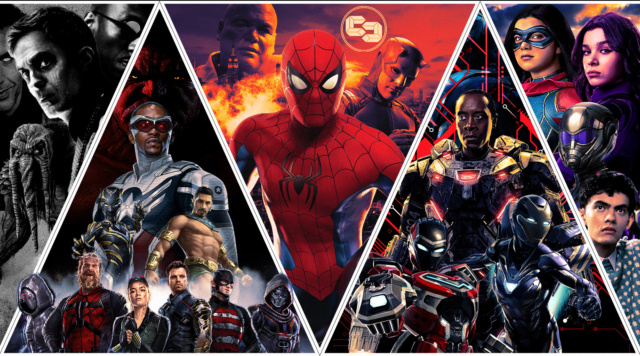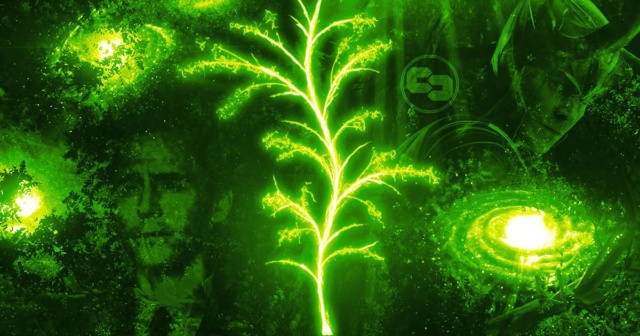New Discovery in ‘Thor: Love and Thunder’ Ties to The Multiverse Saga
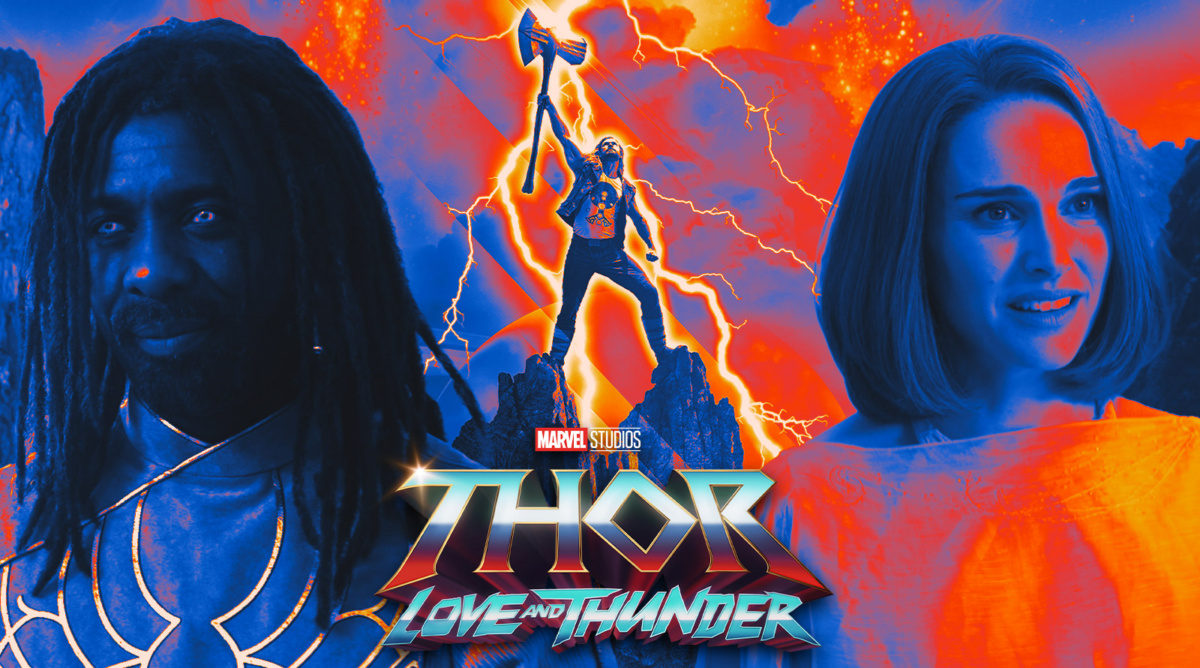
More than a year has passed since the premiere of Thor: Love and Thunder in theaters, and since then, fans have had a lot to say about the 4th installment in the Thor franchise. It is often regarded as one of the more negatively reviewed sequels, but Thor: Love and Thunder did have its redeeming qualities; the reintroduction of Mjölnir and Jane Foster as the Mighty Thor, as well as the massive world-building with the introduction of Omnipotence City, gods from other pantheons, and the realm of Valhalla, to name a few.
After being mentioned in passing throughout the Thor films, Valhalla was finally presented during the post-credit scene of Thor: Love and Thunder, where Jane Foster appeared after her death. Well, a discovery of a “blink and you’ll miss it” detail in the post-credit scene could be a massive clue that ties this seemingly standalone project to the larger Multiverse Saga story.
[Warning: Spoilers for Thor: Love and Thunder discussed below!]
The Sacred Timeline appears in Thor: Love and Thunder
Once all the credits rolled on Thor: Love and Thunder, fans were treated to the second post-credit scene of the film, in which Natalie Portman’s Jane Foster appears from a thick fog in an unfamiliar place following her death at the hands of Gorr the God Butcher. She was greeted by a familiar face, Heimdall (Idris Elba), the former gatekeeper of Asgard who died at the hands of Thanos during Avengers: Infinity War.
Heimdall thanks Jane for protecting his son from Gorr, and welcomes her to Valhalla, the Asgardian afterlife. The scene is seemingly straightforward and to the point; however, upon further inspection, the scene holds what appears to be a massive clue that carries many implications moving forward.
Just as the scene starts, if you pause and look beyond the horizon and towards the sky, you’ll notice the unwoven threads of the Multiverse in the background. The appearance of these timelines implies several things about Valhalla and serves as a stepping point for new theories down the line. Our sources confirmed that part of the early ideas of the forthcoming Thor 5 film involve Valhalla as one of the upcoming locations, exploring another aspect of Norse mythology.
Valhalla and other afterlife realms in The Multiverse Saga
Let’s start with what we know. Based on how the timelines are spread out, we can infer that Jane Foster enters Valhalla before Loki takes his place at the End of Time, holding together the strands of the Multiverse as a large Yggdrasil tree.
We can also infer that Valhalla exists outside of the known Multiverse. This carries massive implications, as it implies that the realms of the afterlife exist outside of the known boundaries of the Multiverse. This would include the Ancestral Plane from Wakanda, the Duat and Field of Reeds from Moon Knight, and other possible forms of afterlife, along with Valhalla.
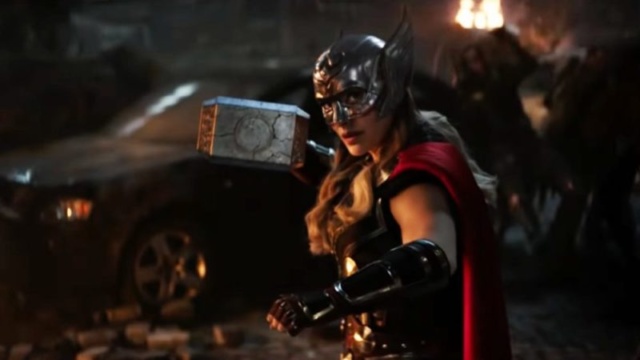
This also places all these realms in a specific category of places outside the Multiverse, such as the Quantum Realm, the Gap Junction, and the Nexus of All Realities.
Setting up Thor vs. Hercules: A Clash of Gods
Having Valhalla exist outside the known Multiverse is an exciting story point for the upcoming Thor 5 film and the Multiverse Saga overall, as it raises many questions and plausible theories moving forward. However, getting to Valhalla is the tricky part, as one would have to die in battle to reach it.
The implication that we may visit Valhalla in Thor 5 could lead down a path in the story where Thor would ultimately have to die in battle in the upcoming film to reach Valhalla. We can expect Thor to face a very worthy adversary in the upcoming film: Hercules.
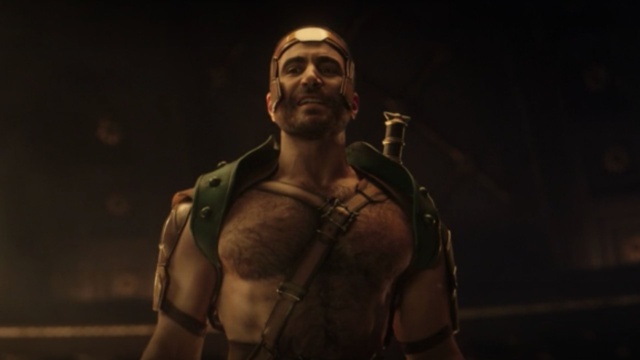
Hercules was introduced in the mid-credits scene of Thor: Love and Thunder, where his father, Zeus, tasked him to kill the God of Thunder following the skirmish at Omnipotence City. This created a conflict between the Olympian Pantheon and the Norse Gods, which will undoubtedly be addressed in the upcoming movie. Perhaps midway through the film, Thor will face off against Hercules and fall at the hands of the God of Strength, allowing Thor to enter the Gates of Valhalla.
Although not much is known about Valhalla in the comics, Valhalla in Norse Mythology tells a different story. Norse Mythology describes Valhalla as a mythical hall where warriors who die in battle feast at this grand Hall until called upon by Odin to fight in the battle known as Ragnarök.
It is expected that most Norse Gods like Frigga, the Warriors Three and possibly even Odin himself are in Valhalla. So, we could expect a couple of appearances from the previous Thor films to make their way to the MCU once again for the next installment, as well as some new plausible faces.
The Thor Corps could join the fray
If Valhalla exists outside of the known Multiverse, could this imply that this Hall is open to ALL possible variants of Norse characters in the Marvel Multiverse, not just Earth-616? Could Valhalla be the home to multiple Thor variants or variants that possess the power of Thor?
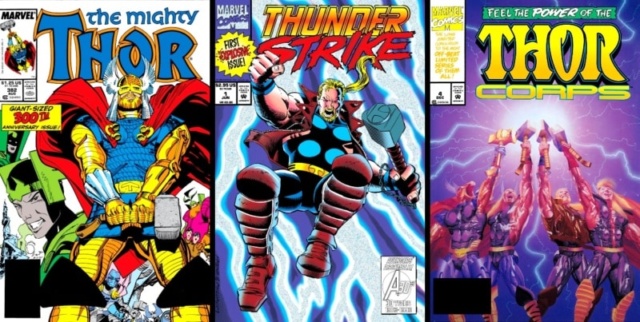
It could serve as a way to introduce the team known as the Thor Corps into the MCU and bring many iterations of Thor together. That could include Thor Odinson, Jane Foster’s Mighty Thor, Eric Masterson’s Thunderstrike, and Beta Ray Bill, to name a few.
It is possible that as the Greek Pantheon seeks to eradicate the Norse Gods and the Earth along with it. Odin could then call upon the forces of Valhalla to take on the Greek Gods, setting Thor 5 up to be a definitive battle between the two pantheons. However, Odin’s call to arms in Valhalla could signal a more dangerous threat down the road.
The Real Ragnarök = Secret Wars?
The apocalyptic event in the MCU known as Ragnarök prophesized the destruction of Asgard. Except, in Norse Mythology, Ragnarök wasn’t just the end of Asgard. Ragnarök foretold the end of the universe. Not only that, but Odin never called upon the warriors of Valhalla to fight against Hela or her forces either.
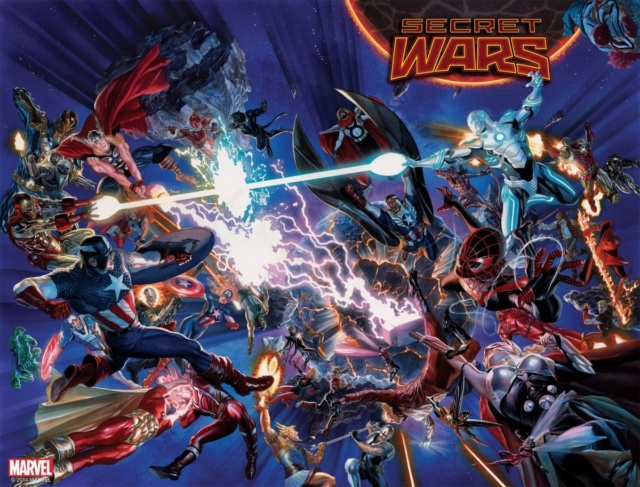
So, if Odin never called upon the warriors of Valhalla, is it possible that the real Ragnarök never occurred? Could it be possible that, much like the Infinity Gauntlet in Odin’s vault, the Ragnarök that occurred in Thor: Ragnarök was a fake? As we steadily approach the end of the Multiverse Saga with Avengers: Secret Wars, the true Ragnarök may come as we approach the end of the known Multiverse. But that’s another speculative theory for another time.
Exciting implications for Thor 5 and other MCU projects
What do you think about this revelation and what it means for Thor 5 and other future Marvel projects? Are you excited about another Thor film? Let us know on social media @mycosmiccircus or in The Cosmic Circus Discord!
Exclusive: Marvel Studios’ Next Story Arcs

